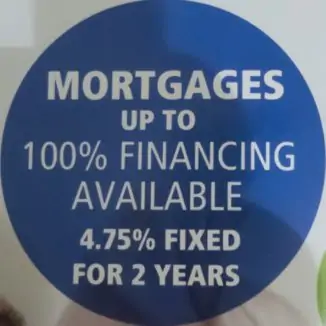
Are you struggling to make your mortgage payments? Maybe you lost your job, have trouble making your ends meet, or are facing other kinds of financial problems. Whatever the case, the experience is horrible, and the thought of losing your house can be terrifying. Luckily, in this article, you’ll get insight into how you can save your home when paying your mortgage becomes a problem.
Sometimes, the kind of mortgage you apply may strain you in the long run, meaning that you may even skip some months without paying. In such mortgage types, you may have to pay a fixed rate in the first 2-3 years and an adjustable rate for the rest of the term. Unless you understand such mortgage types well, you may get confused and think it’s easy to manage, only to face some difficulties in the future. To avoid such scenarios and failing to pay your mortgage, here’s what you should do:
- Understand your mortgage.
It could be the reason you got stuck in paying your mortgage was that you didn’t understand your mortgage type. Are you even aware of whether your payments may increase after a certain period? The first thing to do is to check your mortgage documents. Read them carefully and entirely. If there’s anything you don’t understand, contact your loan servicer immediately for clarification. Unfortunately, many people believe what the mortgage providers inform them, and end up signing the loan documents without reading and understanding every detail.
Most loan agreement forms come with so many hidden fees. If you’re not aware of them, they may end up burdening you while paying the mortgage to the extent of skipping some payments. Also, if you don’t understand the amount and rates to pay at each specific pay date, it can affect your mortgage, mainly if the amount differs. If the amount has to increase, you need to understand why and for how long. As a result, you’ll be able to prepare yourself to pay promptly. But then, it might surprise you if you have no idea.
- Engage your mortgage service provider.
It would be wise to go through the above process before you start paying for the mortgage. However, if you already took the loan and are struggling, engage your mortgage provider. Let the service provider understand that though you signed the document, you hadn’t understood the concept well and would like to make amendments to accommodate how you can pay with ease. In case your income is the problem, let the mortgage provider know and help you work out something with the amount you can raise by the payment’s date.
Fortunately, many mortgage service providers are flexible and would be willing to help you come up with an easy payment plan. In some cases, the loan providers may increase the payment period, but decrease the amount of payment every month. Click here to see how long a mortgage offer lasts. Also, you may have your interest rates reduced. Sometimes, a loan provider may decide to add your missed payments to your loan balance. Based on your situation and reality of the matter, a loan servicer may choose to cancel or forgive the penalties accrued, either partially or all.
Based on the 2007 Mortgage Forgiveness Debt Relief Act, the forgiven debt gets excluded from your income while calculating the taxes you owe the federal government. (IRS page here). However, it still gets included in your tax return. If your income has to get deducted for a long time to pay for the mortgage and are struggling to pay, you may need to consider a loan modification. But then, you must prove to your mortgage provider that you’ll make a good-faith attempt to pay your loan. For example, you may need to prove that you’ve reduced or entirely dropped some of your expenses to allow you to save money to pay the mortgage. In such a case, your loan provider will more likely negotiate with you.
- Selling your home
If you contact your mortgage provider, but have no way to raise the amount to pay for your mortgage every month, the service provider may advise you to sell your home. This will depend on some factors. For example, if the value of the house will be able to clear the loan in full and leave you with some amount.
- Declare personal bankruptcy.
It should be the last option if all the above ways fail. Though it will legally offer you a fresh start if you can’t satisfy your debt, it will have far-reaching and long-lasting results. It will last for ten years on your credit report, making it difficult for you to get credit. Also, getting a job may be like an uphill task, and you may not be able to buy another home. If you want to apply for life insurance while declared personal bankruptcy, it may not be possible.
- Legal action
You may disagree with your mortgage provider because all of the above methods may not work out, and you don’t want to lose your home. In such a case, you should file for Chapter 13 bankruptcy, where the court approves that you come up with a payment plan. It’s where you’ll use your future income to pay your loan within the next 3-5 years. After you finish paying the mortgage under this plan, you get discharged from certain debts. Such an arrangement is better than losing your property.
Lastly – don’t forget, you can always pick up some extra money to help cushion your situation. Savingadvice.com has a great article on 38 ways to make extra money and Dinksfinance has a good piece on ideas for generating extra money.
Conclusion
As illustrated above, some situations are inevitable and may interfere with our financial stability. When such occurrences happen while servicing a home loan, they may interfere with your mortgage payments. As a result, you may find yourself struggling to settle your home loan. Fortunately, as discussed above, there are ways to help you get off that situation. Talking to your mortgage service provider will help you come up with the best solution for your situation. If none of the above ways works for you, you may consider declaring bankruptcy or taking legal action instead of losing your home.
For More reading on this check out The Free Financial Advisor’s Article on what to do when you fall behind on your mortgage.
For more great Thousandaire articles, read our best stuff:
How Much Interest Can I Earn on 1 Million Dollars?
Can I live Off The Interest On 1 Million Dollars?
The Millionaire Next Doors Formula For Wealth Acquisition
Image Source: Mark Morgan, Via Flickr.

